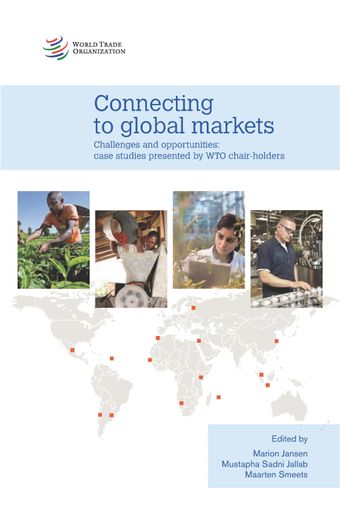Aid for Trade and international cooperation for middle-income countries: the case of Chile

- Authors: Dorotea G. Lopez and Felipe N. Muñoz
- Source: Connecting to Global Markets , pp 149-158
- Publication Date: February 2014
- DOI: https://doi.org/10.30875/3966720e-en
- Language: English
For many developing states which have experienced a substantial decline in their share of world trade and global value added, Aid for Trade (AFT) initiatives have become a critical source of support in a context where these countries suffer from both market and government failure. As such, the key issue is whether AFT programmes, as currently configured, are the right policy instrument or set of instruments to address the weak participation of developing countries in global trade and global value chains. In many regards, the problem relates to an overdependence on a narrow range of exports (e.g. agricultural and resource-based commodities and low value-added manufacturing goods and services) that are faced with declining terms of trade, tariff progressivity and diminishing economic returns (Reinert, 2007). One of the key criticisms that has emerged is that the focus of AFT donors and relevant implementing agencies has been heavily weighted on the architecture of trade support programmes and not sufficiently on industrial upgrading and enterprise development (Cirera, 2009).
-
From This Site
/content/books/9789287042460s015-c001dcterms_subject,pub_countryId-contentType:WorkingPaperSeries -contentType:Periodical -contentType:BookSeries -contentType:ReportSeries105


